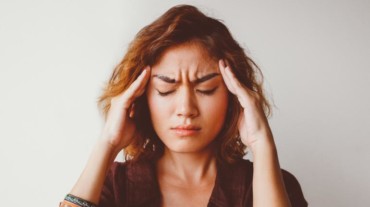
Whenever you feel unsteady, weak or even woozy, don’t you often say, “I’m
feeling dizzy!” It’s a more common and colloquial comment than “I am having
a vertigo attack!”, although it’s not something you should ever rule out and
go and get yourself checked thoroughly.
Recently, Bollywood actor Nushrratt Bharuccha was on a film set when she
felt extremely dizzy, and was rushed to the hospital. Later, she opened up
and shared that the doctors diagnosed it as a vertigo attack, spurred by
underlying stress. That stress, Nushrrat said, could also be a result of the
general emotional and physical toll that the pandemic has had on everyone.
The result? She had to take rest for a week or more before bouncing back in
action, but she ought to be careful.

Nushratt’s experience raised some questions in our mind about what is
vertigo, how do you know if it’s a vertigo attack, what to do if you have or
someone else around you gets a vertigo attack, and ways to cure it.
So, we got in touch with Dr Anita Bhandari, Neurotologist and Founder of
NeuroEquilibrium, to understand it a little better. Here’s what we asked.
“Vertigo and dizziness can be one of the most unsettling and often scary
feelings,” says Dr Bhandari, and explains that it is a sensation of spinning
or unsteadiness.
It can affect people of all ages. Dizziness increases the risk of falls and
can be a health hazard for people over 60. Vertigo can occur due
to many reasons. The inner ear, which controls the balance of the body, is
the most common area to be affected. The inner ear contains a liquid called
endolymph, and calcium carbonate crystals which are responsible for
maintaining the equilibrium of the body. Changes in endolymph pressure,
displacement of the calcium crystals, and inflammation of the balance nerve
are the most common causes of Vertigo due to the inner ear.
Vertigo can also occur due to disorders related to blood pressure
fluctuations, anemia, uncontrolled diabetes, etc. Sometimes, vertigo and
balance problems are due to disorders of the nervous system like vestibular
migraine or strokes. So every case of vertigo should be evaluated to find
the underlying cause.
Also Read: Feel dizzy when you stand up? Study says you could be at a high risk of dementia

Firstly, don’t panic!
Select Topics of your interest and let us customize your feed.
PERSONALISE NOW1. The most important thing to remember at the onset is to sit or lie down
to avoid falling.
2. Try to understand what you are feeling and if anything is worsening your
symptoms.
3. Are you having any of these symptoms – severe headache, blurring of
vision, slurring speech, or weakness in any part of the body? Remember to
share this information with your doctor.
Vertigo patients require a detailed analysis of history along with
specialized tests to diagnose the underlying cause. We often see that these
patients are given medicines to suppress the symptoms temporarily. However,
what these patients actually require is a detailed evaluation with
specialized tests like Videonystagmography, Subjective Visual Vertical,
vHIT, and Dynamic Visual Acuity, etc.
Also Read: Feel dizzy when you stand up? Study says you could be at a high risk of dementia

The evaluation helps in diagnosing the underlying cause, which paves the way
to optimum treatment.
Different disorders which lead to dizziness will require different modes of
treatment. For example, one of the most common causes of vertigo is BPPV, a
condition where the calcium carbonate crystals in the inner ear get
displaced to a wrong position. BPPV is what top Australian batsman Steve
Smith suffered from before his second one-day match against India in the
last series in 2020. The management of BPPV is based on identifying the
location of the displaced crystal by the specialized tests and then the
doctor performing specific exercises called repositioning maneuvers to set
the crystals back in the correct position.